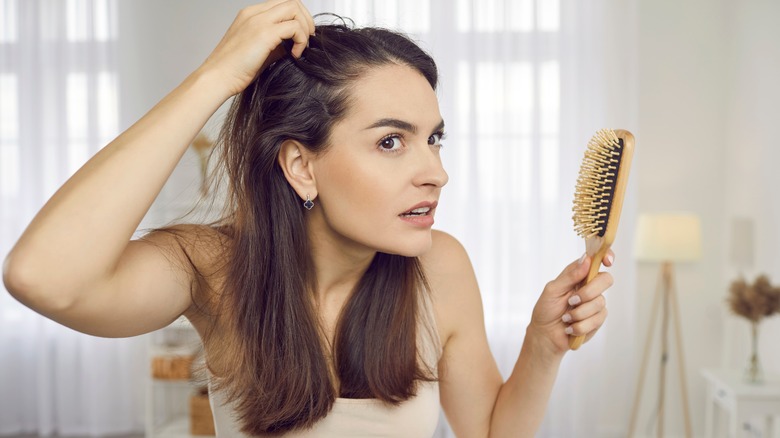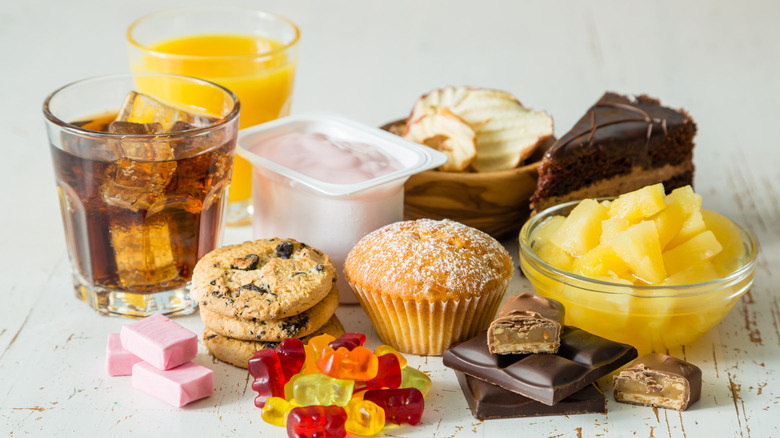Foods That Are Secretly Making Your Dandruff Worse
We all get those embarrassing little flakes every once in a while. Dandruff can result from several conditions. You might notice more flakes in the winter as your skin and scalp get drier. Your dandruff could also be from not washing your hair enough or completely. That's because the oils on your scalp can build up and cause flaking. Some people might have dandruff if they have seborrheic dermatitis. Others develop dandruff if they have an overgrowth of the Malassezia fungus.
While moisturizing, washing your hair with dandruff shampoos, limiting hair product build-up, and managing stress might help you treat and manage your dandruff, you might also want to take a look at your diet. According to WebMD, foods with omega-3 fatty acids support healthy skin, and biotin and zinc can be good for your hair. Yet sweets and other processed foods can trigger your body to produce more oil or promote yeast overgrowth.
Foods to avoid if you have dandruff
The Malassezia fungus, other fungi, and yeasts can get out of hand if you eat a lot of sugar. Not only that, but too many sweets and sugary drinks in your system quickly increase your blood sugar and insulin levels. As a result, your body secretes hormones that boost oil production. The Malassezia fungus feeds off your body's natural oils, leaving oleic acid on your scalp. This oleic acid can cause your scalp to itch or shed skin cells (per Head & Shoulders).
A 2019 study in the Journal of Investigative Dermatology looked at how diet might affect people with seborrheic dermatitis. The researchers looked at the diets of more than 4,000 people, where 14.5% of them had seborrheic dermatitis. People who ate more fruits had a lower risk of the skin condition. Those who consumed alcohol, potatoes, and processed and unprocessed meat were more likely to have seborrheic dermatitis. This was particularly the case in women.


